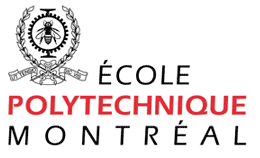Prof Gabriel Fabien-Ouellet, Prof P Pasquier
No more applications being accepted
Funded PhD Project (Students Worldwide)
About the Project
Open loop geothermal systems have the potential to significantly reduce heating and air-conditioning costs. Geothermal systems use the ground, and more precisely the aquifer, as a heat reservoir. Thus, the aquifer intrinsic properties, most notably its heat and hydraulic conductivity, affect directly the energy that can be stored and extracted from the ground. The spatial variability of those properties is particularly important, as it can greatly influence water and heat flow. Therefore, characterizing the spatial variability of aquifers at the geothermal scale is necessary for designing and exploiting such systems, and would help to better understand the interaction between adjacent geothermal wells.
This PhD project aims to develop an approach for characterizing open loop geothermal systems based on artificial intelligence and geophysical monitoring. New characterization tools are needed to address important issues, such as: what are the flow patterns of water and heat around injection wells, do preferential pathways exist and what are their impacts on heat flow? Answering those questions is challenging both scientifically and technically, and requires a multidisciplinary effort. Consequently, the characterization approach will include different field measurements: seismic and electrical cross-well tomography, as well as thermal and pumping tests. Fieldwork will take place at the experimental site of Varennes The integration of geophysical and thermal data will be based on deep learning: deep neural networks will be trained to detect permeable horizons from seismic and electrical surveys. Training will be based on coupled simulations of ground water flow, heat exchange and electrical resistivity measurements. The methodology will be applied at the experimental site of Varennes, which is fully instrumented to simulate the operating conditions of open-loop geothermal wells of large buildings. The new insights obtained from methodological developments and their application in real-world conditions will advance the design, the exploitation and the environmental impact assessment of geothermal systems.
Funding Notes
Financial support is provided for the duration of the PhD project.
Applicants from physics, computer sciences, applied mathematics or earth sciences are favored, but anyone interested in the topic is encouraged to apply. Experience with programming is required.

 Continue with Facebook
Continue with Facebook

